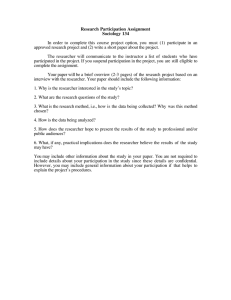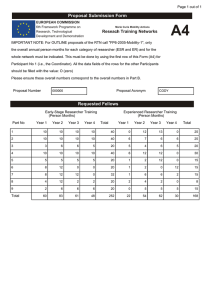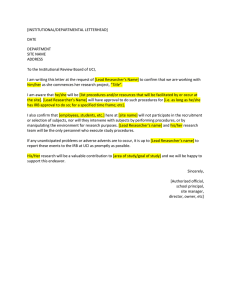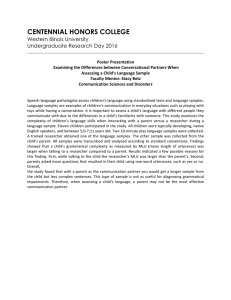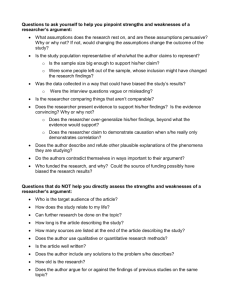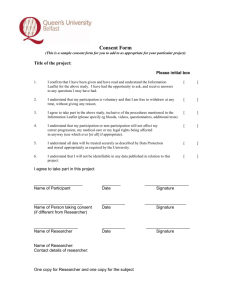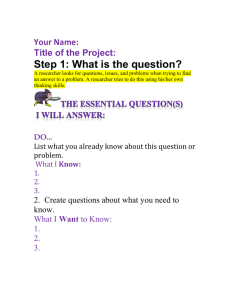The Scientific Method
advertisement
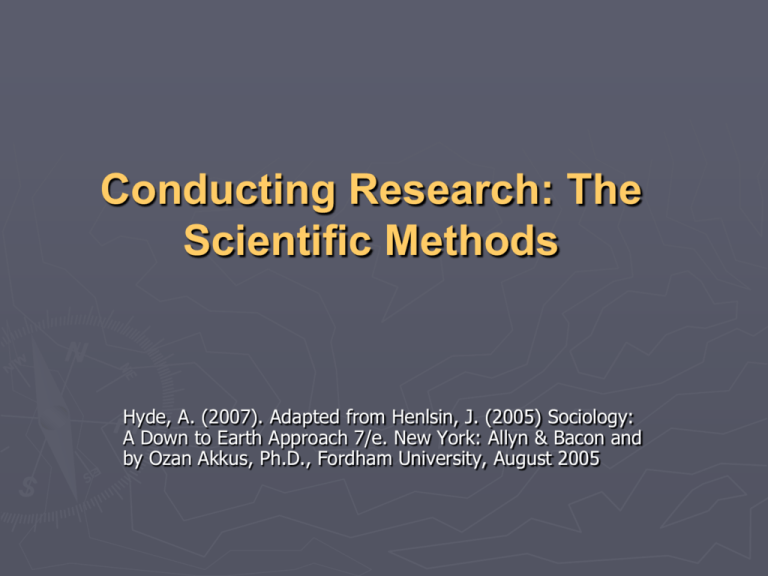
Conducting Research: The Scientific Methods Hyde, A. (2007). Adapted from Henlsin, J. (2005) Sociology: A Down to Earth Approach 7/e. New York: Allyn & Bacon and by Ozan Akkus, Ph.D., Fordham University, August 2005 Definitions of Science ► The observation, identification, description, experimental investigation, and theoretical explanation of phenomena. ► The systematic and organized inquiry into the natural world and its phenomena. ► The systematic observation of natural events and conditions in order to discover facts about them and to formulate laws and principles based on these facts. The Goals of Science Understand (philosophical inquiry; social and natural sciences) Predict (social and natural sciences) Control (social and natural sciences) The Natural Sciences & The Social Sciences The Natural Sciences—Explain and Predict Events in Natural Environment The Social Sciences—Examine Human Relationships Political Science—Studies How People Govern Themselves/Use Power Economics—Studies the Production and Distribution of Goods and Services Anthropology—The Study of Culture Psychology—The Study of Processes Within Individuals Sociology – The Study of Groups, Individuals and Environments What Makes a Method Scientific? ►A scientific method is any process by which researchers, collectively and over time, endeavor to construct an accurate (that is, reliable, consistent and non-arbitrary) representation of some phenomenon. ► The Scientific Method usually refers to of the testing of an hypothesis via experimental design to generate quantifiable data. The Scientific Method: Scope Can be applied to anything within the range of our experiences Can offer useful explanations and predictions (technological advances; medical cures) Aims to falsify more than to prove Does not aim to give an ultimate answer. iterative and recursive nature always tentative Does not establish GOODNESS, BEAUTY, or TRUTH Levels of Analysis & Types of Research Macro—Broad Matters Micro—Individualistic Matters Basic-Constructing Theory Applied-Implementing Solutions Steps in the Research Process 1. Selecting a Topic 5. Choosing a Research Method 2. Defining a Problem 6. Collecting Data 3. Reviewing the Literature 7. Analyzing Results 4. Formulating a 8. Sharing Results Hypothesis Steps in the Research Process Source: Modification of Fig. 2.2 of Schaefer 1989 Deciding Which Method to Use Available Resources Access to Subjects Purpose of Research Researcher’s Background and Training Deciding Which Method to Use Quantitative Research Methods Emphasis on Precise Measurement Uses Statistics and Numbers Qualitative Research Methods Emphasis on Observing, Describing, and Interpreting Behavior Ethics in Social Research Openness, Honesty, and Truthfulness Forbids Falsifying Results Condemns Plagiarism Subjects’ Informed Consent Subjects’ Anonymity Protecting Subjects: The Brajuha Research Misleading Subjects: The Humphreys Research Research Methods: Survey Choose Population Select a Sample Random Sample Stratified Random Sample Choose Neutral Questions Two Types of Surveys Questionnaires Self-Administered Allow the Largest Sample Low Cost Loss of Researcher Control Interviews More Researcher Control Time Consuming Interviewer Bias Structured Interviews Open-Ended Questions Establish Rapport Research Methods: Participant Observation “Fieldwork” Researcher Participates Exploratory Work or Ethnography Generates Hypotheses Problems with Generalizability Research Methods: Secondary Analysis Analyze Data Collected by Others Researcher Cannot Be Sure of Data Quality Research Methods: Document Analysis Examine Books, Newspapers, Diaries, etc. Limited Scope Cannot Study Topic Unless Access is Granted Research Methods: Unobtrusive Measures Observe Question People Without Them Knowing of Ethics Research Methods: Experiments Experimental Group – Random Assignment Control Group – Random Assignment Dependent Variables Independent Variables Control of Outside Variables Dependent vs. Independent Variables ► Dependent Variable = what you are measuring (Test Scores) ► Independent Variable = what are in control of or what you manipulate (Big Bird) ► Measure the Dependent Variable Twice (Pre- and Post – Test) ► How does the Independent Variable affect the Dependent Variable? Figure 5.2 The Experiment Scientific Theory Building/Testing
